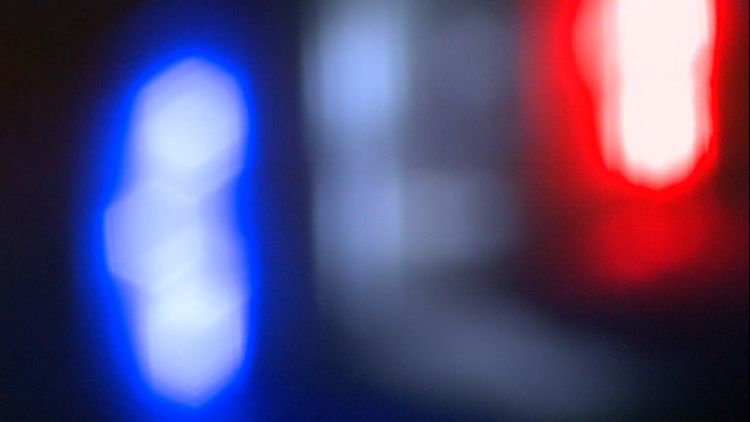“Shucked,” the corn-powered, crowd-pleasing musical that scored a kernel-popping nine Tony Award nominations in 2023 began as ...
”Moonshine: That Hee Haw Musical” in the mid-2010s? Perhaps Robert Horn, the man responsible for the book of “Shucked” — which will run from April 22 through May 11 in Cleveland at Playhouse Square’s Connor Palace — can help us put the pieces together? “I still can’t put the pieces together,” says a laughing Horn, on the phone from the big Apple recently one day before he was to jet off for London for the West End openings of “Shucked” and “Disney’s Hercules,” with which he had a hand in adapting from the 1997 animated movie. When pitched the idea of writing a musical based on the country-tinged variety TV show “Hee Haw,” Hornsaw a chance to do something like Vaudeville, which he’d adored. “I said, ‘Yeah, I’ll do it, but I don’t wanna do a variety show,’” he recalls.

“If you’re willing to do a book musical — a proper musical. There was no story for ‘Hee Haw,’ just a tone.” Then best known for a stint writing and producing on the CBS sitcom “Designing Women,” Horn met with several potential musical collaborators, including eventual “Shucked” partners country singer-songwriters Brandy Clark and Shane McAnally.
“It was love at first banjo,” he says, “and we wrote the show.” However, “Moonshine” didn’t glisten. “I think we rushed it,” he says.
“I think at that point, we didn’t figure out what the show was, and I think we were locked a little bit to this format of ‘Hee Haw.’” Fast-forward a few years, after Horn had won a Tony for his book for “Tootsie” in 2019, which gave him the juice to revisit his work with Clark and McAnally. With the help of other creative folks, this time it clicked, and they struck yellow gold with “Shucked.
” “Shucked” is set in a small, secluded town called (cough) Cob County. When the town’s all-important corn begins to die, a young girl named (COUGH) Maizy sets off to the big city — Tampa — for help but finds a con man, whom she brings back to her vulnerable home. ‘Shucked’ bringing all its corn- y humor to Cleveland /*! This file is auto-generated */!function(d,l){"use strict";l.
querySelector&&d.addEventListener&&"undefined"!=typeof URL&&(d.wp=d.
wp||{},d.wp.receiveEmbedMessage||(d.
wp.receiveEmbedMessage=function(e){var t=e.data;if((t||t.
secret||t.message||t.value)&&!/[^a-zA-Z0-9]/.
test(t.secret)){for(var s,r,n,a=l.querySelectorAll('iframe[data-secret="'+t.
secret+'"]'),o=l.querySelectorAll('blockquote[data-secret="'+t.secret+'"]'),c=new RegExp("^https?:$","i"),i=0;i
length;i++)o[i].style.display="none";for(i=0;i
length;i++)s=a[i],e.source===s.contentWindow&&(s.
removeAttribute("style"),"height"===t.message?(1e3<(r=parseInt(t.value,10))?r=1e3:~~r<200&&(r=200),s.
height=r):"link"===t.message&&(r=new URL(s.getAttribute("src")),n=new URL(t.
value),c.test(n.protocol))&&n.
host===r.host&&l.activeElement===s&&(d.
top.location.href=t.
value))}},d.addEventListener("message",d.wp.
receiveEmbedMessage,!1),l.addEventListener("DOMContentLoaded",function(){for(var e,t,s=l.querySelectorAll("iframe.
wp-embedded-content"),r=0;r
random().toString(36).substring(2,12),e.
src+="#?secret="+t,e.setAttribute("data-secret",t)),e.contentWindow.
postMessage({message:"ready",secret:t},"*")},!1)))}(window,document); In a conversation that has been edited for clarity and length, Horn — who, after being born in Connecticut, grew up in Brooklyn, New York — talks about his corn-y journey with this show. Q How is someone who worked on “Designing Women” and created “Shucked” from New York? A I know! Here’s the thing: I think, as a gay man, I’ve always had an attraction to Southern culture or the melodrama of Southern culture — especially Southern women, (dating) back to Tennessee Williams. I’ve always loved that .
.. and then I married a Southerner, who is from Georgia and whose whole family is from Georgia, so I was surrounded by that.
And I always say, though, “I write it Jewish, and they say it’s Southern.” It works out well that way. (Laughs.
) Q You must have loved working on “Designing Women.” A Oh, I loved it. I just loved it.
You know, it was in my wheelhouse, as we say, because it did what I love to do, which was talk about issues but do it through a lens of comedy and character. And I always feel when you can make people laugh, you can make people listen. It was a great opportunity for us to address themes that in the late ’80s/early ’90s weren’t talked about.
And these women talked about it and did it with humor and pathos and phenomenal acting. It was my first big series and a great way to cut my teeth. Q Turning to “Shucked,” sometimes the book writer on a musical also is the lyricist, but that’s not the case with this show.
How did collaborating with Brandy Clark and Shane McAnally work? A Theater is such a collaborative art form — more than film and television or anything. Shane, Brandy and I wrote the show together. It started off with me writing an outline, and then we would sit and go over the outline and would start talking about where the songs would go.
And then I’d write a draft. And a lot of the time, they’d let me in the room with them to write the songs, and I’ll throw in a line or I’d write a scene and they’ll say, “Can we turn that scene into a song?” And they’ll use some of my lines. They’re country music artists.
They have a really incredible sense of storytelling because country music is storytelling music, and so they really understand story. They just had to learn how to not tell the whole story in one song because in musical theater, you tell the story of a moment — whether it’s an inner monologue, it’s an “I want” song, whatever it is to forward the action or the character. It’s only of that momen, and they took to that very naturally.
So they really were a big part of developing the story, and they worked on the book with me. I worked on the music with them. It truly was a collaborative form.
Q Were all three of you responsible for names such as Maizy and Cob County? A No, that’s all me. The jokes are me. The lyrics are them, andthe script is me, but they bleed together.
Whenever you sit down to write, you ask yourself the very first question: What’s the tone? And everybody has to be on the same page of what that tone is or you get, well, I won’t mention shows, but you get shows that don’t work. But we were all on the same page, and their humor is so like mine. Their lyrics are hysterical where they need to be.
What they do really well and what the show needed was they can say so much with so little. They can write a line so profound in the simplest way — it’s not flowery, but it does have imagery, and they’re just brilliant at that. And it works perfectly with these characters because there needs to be a simplicity to these characters.
Q Well, pun intended, did crowds eat it all up from the beginning? A Like creamed corn — they just devoured it. Here’s the funny thing: We knew we loved it. We knew we had this show that we all loved, but you have no idea how an audience is gonna respond, right? And leading up to our very first preview, we had no ticket sales.
Nobody knew what the show was. Our producer was so smart. He decided to market it (with) just an ear of corn and really funny log lines but not say anything about the show.
So it started this sort of buzz in the theater community, which was, like, “What’s this corn musical?” “What IS this?” And people started to be curious. And then he offered everybody, like, $69 seats for previews, which you never do. But he said, “I want to get people in there and laughing because they will tell other people to go see the show,” and he was right.
We had an invited dress (rehearsal) and the first preview, and by the second preview, all our previews were sold out because we relied on word-of-mouth. And it was post-COVID. Everything that had come to Broadway was very serious.
There’s a really beautiful message at the heart of this show, but we don’t hit you over the head with it, you know? It’s really funny — and by the time you get to the end, you’re crying because you realize what the message is, and it’s very sweet. And we feed it to you with a lot of sugar. People were ready for that — to really laugh, and so I think the timing was perfect for when the show was opened.
Q Without giving away the whole can of corn, can you talk about Maizy’s journey in the story? A Maizy’s a really tough character. (The show is) about a town that has locked itself off from the outside world in fear that somebody will come in and tell them how to live their lives, and they’re very happy in their small, little community, which is driven by corn. Corn is their commerce.
Corn is their way of life. Everything revolves around corn. And they have built huge corn stalks on every border, completely surrounding the town.
Because of that, no one’s ever left or come to this place, and they live in their own little paradise. (But) the corn starts to die, and when the corn starts to die, so does their way of life. They are afraid that will be the end of their society as they’ve created it.
And so nobody knows what to do, but one girl decides somebody needs to leave here and get help. Nobody’s ever left, and nobody’s brave enough to leave, so she does. She’s a girl who is naïve and innocent but not stupid, and she goes out to get help, and, in her journey, finds that she’s more than she thought she was in this small town.
But in the process of doing that, (she) alienates a lot of the people that she grew up with and brings somebody back from the big city who’s a conman. Basically, the theme of her journey is, “If you don’t open your hearts to people who are different than you, you don’t grow as a person, as a community, as a culture.” The corn comes back to life at the end of the piece because these people have all learned to accept someone who is different than them on both sides.
There’s a really sweet message that’s done through comedy, and it’s a message that I think at this time we really need, which is, “Stop looking at the issues and look at each other.” Q We can try. A We can try.
...
That’s all I can ask. Q Is there any aspect of the touring production you would single out? A Oh my God, it’s such an ensemble piece — everybody in it is really fantastic. Q This question feels both obligatory and something to apologize for: What is your relationship with corn? Did you love it when you were a kid? When you see it on your plate now, does it make you think of work? A (Laughs.
) I grew up Jewish in Brooklyn, so the only corn I had was on my toes! I didn’t really have an opinion about corn, but now I respect her. I love her. She has given me joy.
She’s a starch I can tolerate. She fuels a lot of my life, literally and figuratively. Q Is there anything else you want to mention? A I want to say go see (“Shucked”) and find out for yourself.
You won’t be sorry. You will have the time of your life. It’s an easy night to go and escape all the crap that you had during the day and bond with 2,000 people.
It’s such a communal experience — you just sit there, and you’re laughing with all these other people that you don’t know and may not wanna know when you leave the theater. ..
. Laughter is just good for the soul. And you’ll see yourself up there in one of those characters.
You will see yourself. Where: Playhouse Square’s Connor Palace, 1615 Euclid Ave., Cleveland.
When: April 22 through May 11. Tickets: $45 to $115. Info: 216-241-6000 or PlayhouseSquare.
org ..
Top

Robert Horn worked with country music artists to find ‘Shucked’ sweet spot

“Shucked,” the corn-powered, crowd-pleasing musical that scored a kernel-popping nine Tony Award nominations in 2023 began as ... ”Moonshine: That Hee Haw Musical” in the mid-2010s? Perhaps Robert Horn, the man responsible for the book of “Shucked” — which will run from April 22 through May 11 in Cleveland at Playhouse Square’s Connor Palace — [...]











